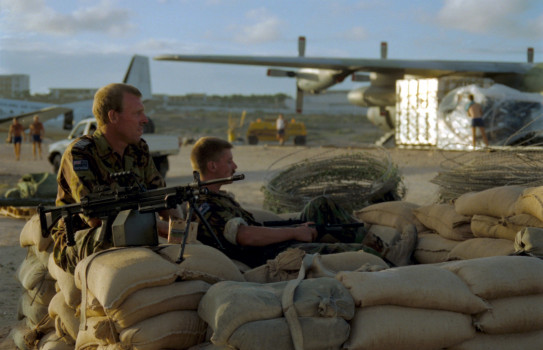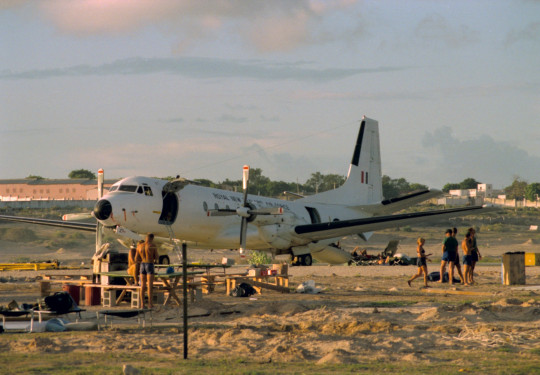Kiwi veterans mark more than 30 years since Somalia deployment
The dedication and resilience of New Zealand Defence Force personnel has been remembered during events to commemorate the recent 30th anniversary of the Defence Force’s deployment to Somalia.
24 April, 2024
In 1993, three Royal New Zealand Air Force (RNZAF) Andover transport aircraft and their crews from No. 42 Squadron were deployed to Mogadishu, Somalia. The 62-strong RNZAF contingent formed part of the multi-national effort to protect food aid convoys from Somali warlords.
During their five-month deployment, 233 missions were flown, carrying supplies and transporting personnel in and out of Mogadishu.
The New Zealand Army's involvement began in 1992 with the deployment of a 28-personnel supply detachment as part of the original United Nations operation in Somalia. Its primary responsibility was to provide supplies to the UN Force.
In July 1993, due to the deteriorating situation on the ground, the detachment was replaced by a 43-personnel supply platoon, which included an infantry section from the 1st Battalion, Royal New Zealand Infantry Regiment.
This deployment marked the first time since the Vietnam War that New Zealand infantry had been deployed to a war zone.
More than three decades on, around 70 New Zealand veterans of the UN peacekeeping operation in Somalia have reunited in Wellington. They were welcomed to Defence House on Tuesday with a pōwhiri hosted by the Deputy Chief of Air Force, Air Commodore Daniel Hunt, and also attended by the head of Veterans’ Affairs, Bernadine MacKenzie.
One of the organisers, Dean Groves, said the reunion was an opportunity to ensure the efforts of air force and army personnel on this deployment are remembered.
“The Kiwi personnel in Mogadishu played a vital role in a challenging conflict and earned significant respect from their international peers.”
The New Zealand deployment operated from what was known as Taniwha Hill camp, nestled on a large sand dune between the Indian Ocean and Mogadishu Airport.
The platoon witnessed the Battle of Mogadishu, including the infamous Black Hawk Down incident.
Mr Groves said the conditions were challenging and dangerous but the Kiwi troops persevered, often contending with inadequate equipment and facing constant threats from Somali bandits.

Royal New Zealand Air Force and NZ Army personnel were deployed to Somalia in the 1990s, to support a UN peacekeeping operation in the east African nation.
“The New Zealand troops were only issued with small arms and fragmentation vests, which were inadequate for the threat level.
“They drove commercial vehicles with little protection against the power of improvised explosive devices.
“Their primary weapon was speed, as the Somalis were often under the influence of the hallucinatory herbal drug known as khat. Sometimes, the situation deteriorated to a point where all driving was curtailed,” he said.
Helicopters had to be used to fly to United Nations locations around Mogadishu. Gunfire was constant and sometimes Somali bandits would climb into the surrounding buildings and fire into the airfield and seaport, where the Kiwis were based, and taking sporadic pot shots. Personnel also came under mortar fire.
Mr Groves said the reunion provided a chance for reflection and to enjoy the camaraderie between old colleagues.
Some of those who attended the reunion also took part in a wreath-laying ceremony at Pukeahu National War Memorial Park last week alongside Australian Governor-General David Hurley - himself a Somali deployment veteran, who invited six New Zealand veterans to attend a state dinner.
On Anzac Day, the New Zealand veterans will be joined by a small group of their Australia counterparts to pay their respects and lay a wreath at the Dawn Service at Pukeahu National War Memorial Park.
